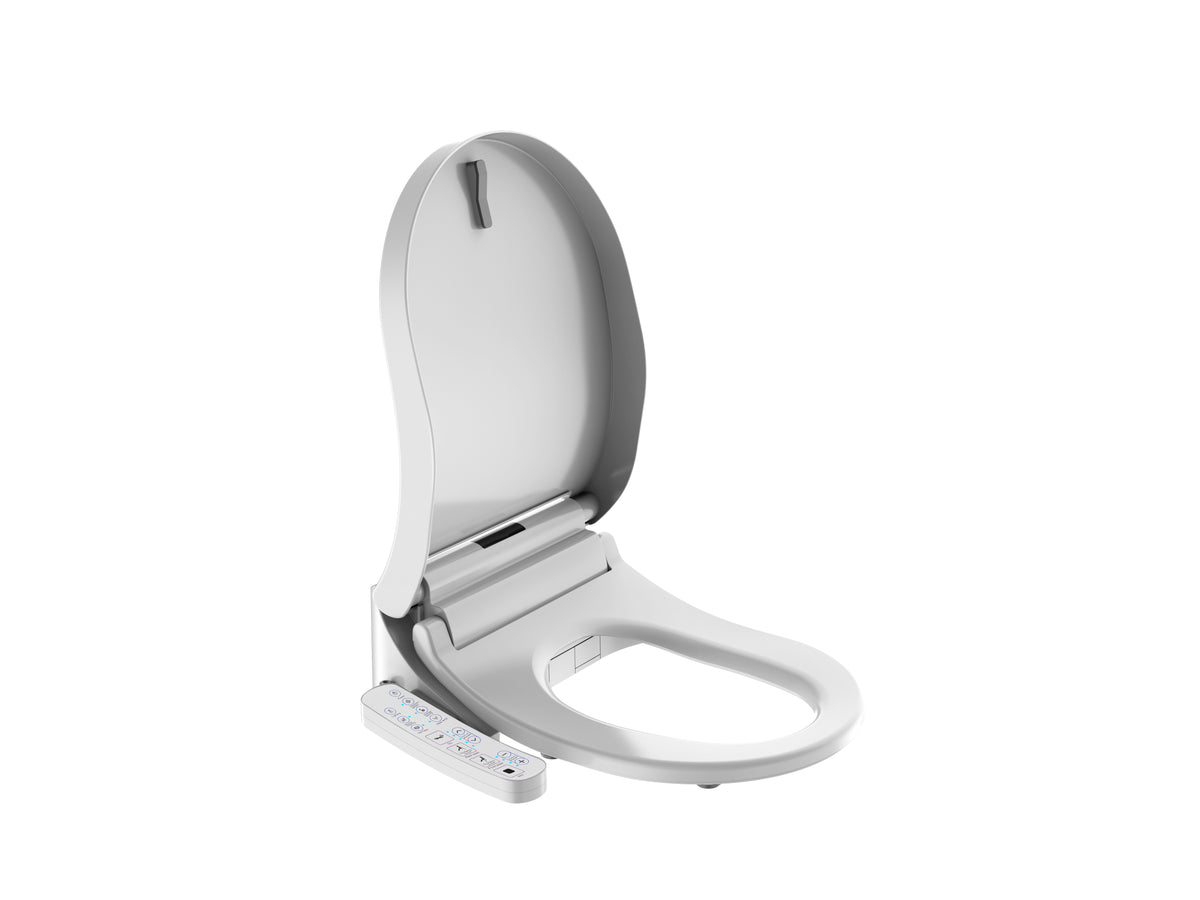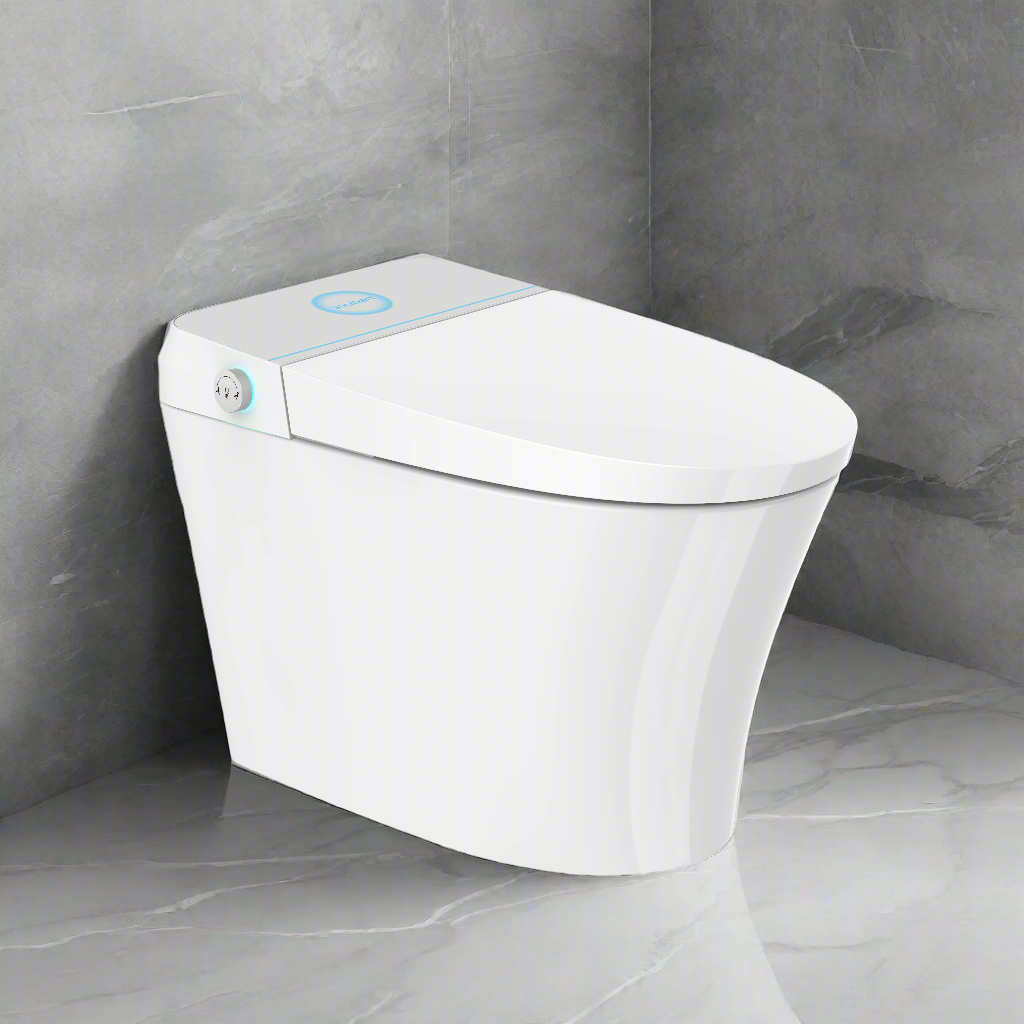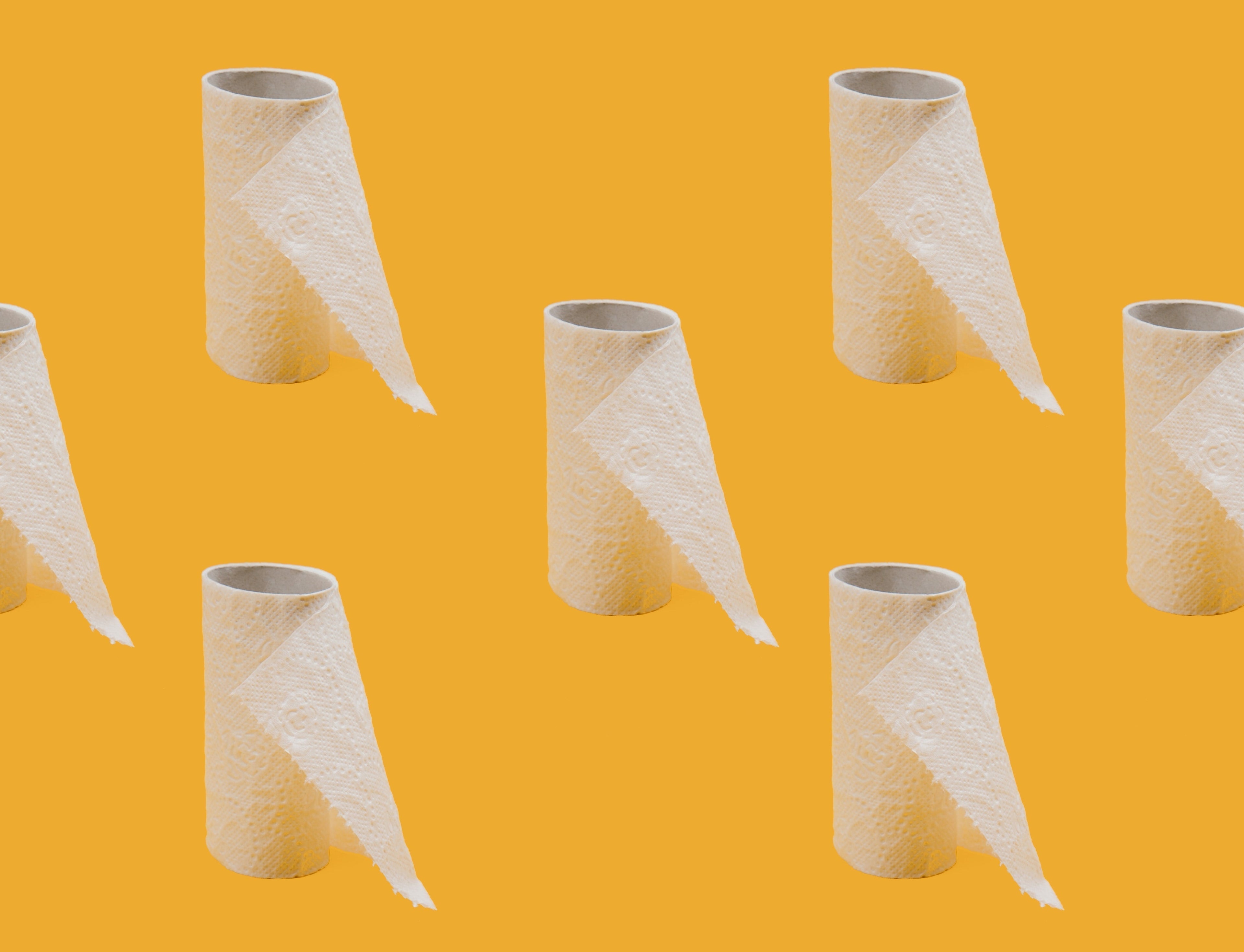It seems like every day there is a new “smart” invention on the market. Smart TVs, smart refrigerators, and even smart toilets. But are these inventions really necessary? And more importantly, are they better for the environment? In this blog post, we will take a look at the facts about smart toilet seats and whether or not they are more environmentally friendly than traditional toilet seats. Stay tuned to learn more!
Wave goodbye to toilet paper
With the advent of new technology, it looks like it might finally be time to say goodbye to toilet paper! With inventions like smart toilet seats, you will never have to worry about running out of toilet paper again. This environmentally friendly alternative uses a water jet spray and a drying fan to clean yourself up after using the restroom with sanitary, hygienic results.
When you think about the hygiene factor, using toilet paper can be less hygienic than using water. Many people use one square of toilet paper at a time, which is not nearly enough to get completely clean. This can lead to bacteria being left behind on your skin, meaning you are dirtier after wiping with just toilet paper alone than before. Using a bidet or smart toilet seat can help ensure that all areas are cleaned properly as they spray water directly onto the skin. This is also great for people with sensitive skin as there is no irritation caused by harsh wiping or chemicals found in some brands of toilet paper.
Another thing is switching from traditional toilet paper to a bidet or smart toilet seat can save you money. Bidets and smart toilets cost much more upfront than a roll of toilet paper; however, they are designed to last for years without needing replacement parts or any additional purchases like extra rolls of toilet tissue. Depending on how often you purchase rolls of toilet paper and how many people use it in your home, these savings can add up quickly over time!

Why is toilet paper bad for the environment?
The Manufacturing Process
Toilet paper is made from trees, which are harvested and processed into wood pulp. This process requires a lot of energy and water, both of which have negative consequences for the environment. The process also produces a lot of carbon dioxide—one study estimated that making one roll of toilet paper emits 3 kg of CO2! That is enough to fill up two balloons! And if that is not enough to give you pause, consider that almost all toilet paper comes wrapped in single-use plastic packaging. That means even more energy and resources are expended on producing materials that will only be used once before being discarded.
Habitat Destruction
In addition to its direct environmental impacts, producing toilet paper also has a significant indirect impact on the environment in the form of habitat destruction. Toilet paper production relies heavily on forests—both those planted specifically for this purpose as well as natural forests. As these forests are cut down or cleared away to make room for more trees to be grown and processed, wildlife habitats are destroyed in the process. This has devastating effects on local biodiversity and ecosystems around the world. It also contributes significantly to climate change by releasing carbon dioxide stored within tree trunks into the atmosphere when they are cut down instead of allowing it to be absorbed into new growth cycles over time as would happen naturally without human interference.
Get rid of wet wipes for good

If you want to get rid of wet wipes for good and make a positive environmental impact, a bidet toilet seat can be your ally! Bidet toilet seats attach to your existing toilet and use a stream of water instead of using multiple wet wipes every time you need to clean up. Not only is this good for the environment since you are avoiding tonnes of single-use items, but it is also so much more hygienic and costs less in the long term.
Using a bidet helps maintain better hygiene while reducing exposure to bacteria and other contaminants on the surface of your skin, while also providing a higher degree of comfort compared to tissues or wet wipes. You can also find bidets with adjustable water heaters that let you adjust the temperature according to your liking! So a bidet is an excellent way for caring for yourself as well as being environmentally conscious.
Why are wet wipes bad for the environment?
The Problem with Flushing Wet Wipes
One of the biggest issues that wet wipes are causing is clogging in sewage systems. Wet wipes do not dissolve so when they are flushed down the toilet they can create blockages in sewers and wastewater treatment systems. This causes costly damage to water infrastructure and can result in backups in people's homes or businesses. Additionally, when these blockages occur, it often requires extensive manual labour to remove them—which costs cities thousands of pounds per year.
Environmental Impact of Wet Wipes
Wet wipes also pose a threat to wildlife due to their inability to biodegrade properly. Once they enter our waterways, they can cause entanglement problems for fish or other aquatic lifeforms as well as clog up rivers and streams. Furthermore, these wet wipes contain chemicals such as formaldehyde-releasing preservatives (FRPs) which can be harmful if ingested by an animal or plant species. As a result of this environmental damage, many countries around the world have started banning certain types of single-use plastics including wet wipes from being sold or used within their borders.
Are electric toilet seats energy efficient?
Yes, electric toilet seats are energy efficient, as they often use much less water than their traditional counterparts. These toilets allow for precise temperature settings and deodorising cycles that can limit energy costs over the long run.
Additionally, some electric toilet seats will alert users if the temperature is too high or too low, potentially preventing further energy wastage. Best of all, these kinds of features can be beneficial to people who suffer from physical ailments such as arthritis or limited mobility—making them more comfortable and helping them save on medical bills in the process. With so many benefits to offer, it is no wonder why so many homes are opting for electric toilet seats these days!
Are bidet toilet seats sanitary?
While some people worry about the perceived mess of using a bidet toilet seat, yes, they are quite clean and hygienic. Most come with high-pressure water jets and self-cleaning nozzles to wash away dirt particles quickly, while gentle air drying and built-in deodorisers leave you feeling refreshed. And since their nozzles are often made from antimicrobial materials, these seats also help to reduce the risk of infection from dangerous germs.
In addition, bidets can be beneficial for people who have limited mobility or problems with personal hygiene due to disability or illness. With all of these features and benefits, it is easy to see why bidet toilet seats can provide a much higher level of sanitation than traditional toilets.

If you have to buy toilet paper, buy eco-friendly alternatives
In recent times, finding toilet paper without packaging has become quite difficult. Not only is packaging wasteful and environmentally unfriendly, but it also adds to the already increasing levels of waste we are creating. Fortunately, numerous eco-friendly alternatives exist on the market today with packaging or paper made from bamboo and other recyclable materials.
By opting for these alternatives instead of regular toilet paper, you can reduce packaging waste while still meeting all your needs. Plus, most of these options are not only better for the environment, but they are also often softer, more absorbent and require fewer sheets to do the job. So next time you need to buy toilet paper, consider buying an eco-friendly alternative that is better for both your bottom line and the planet.
Conclusion
Toilets, wet wipes and toilet paper are essential products for all families. While there can be some environmental issues associated with the usage of these products, smart toilets and eco-friendly alternatives to traditional toilet paper offer a more sustainable solution. By making responsible choices when it comes to toilet care and bathroom hygiene, we can all contribute to a greener future.
Our smart toilet seats come equipped with a bidet, dryer and more, unlocking amazing benefits every day. Shop our full range of smart toilet seats.


